Most Viewed
-
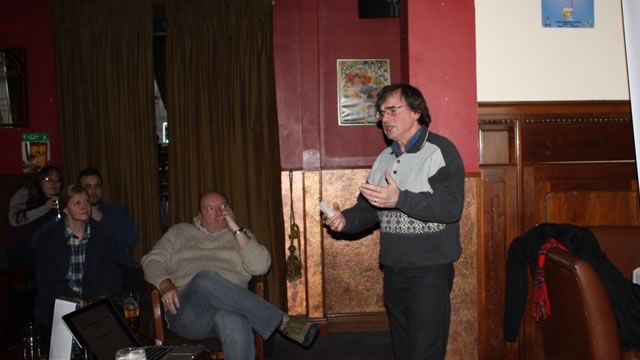
Why do People do Weird Things?
Human behaviour often appears to be maladaptive, pointless, ineffective for its expressed purpose, and even completely absurd. In this talk Michael Heap will examine, with the aid of demonstrations and videos, some examples of odd behaviour that is based on unusual and paranormal ideas and beliefs. These will include healing practices, dowsing, hypnosis, and communication with "the spirit world."
-
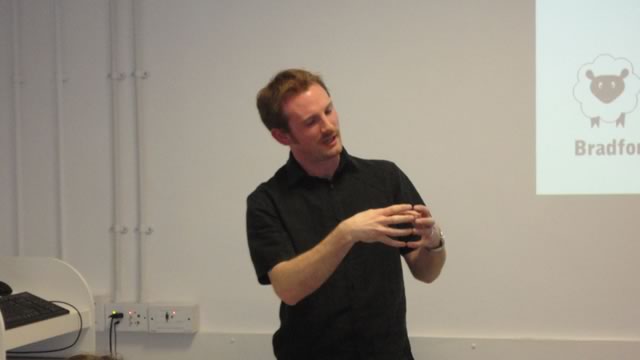
Neuroscience for the Soul
Dr. Craig Aaen-Stockdale (Optometry, Bradford) will give an introduction to the field of neurotheology, which attempts to relate religious behaviour and experience to the workings of the brain. He will review the current literature and give his own thoughts on what, if anything, this tells us.
-
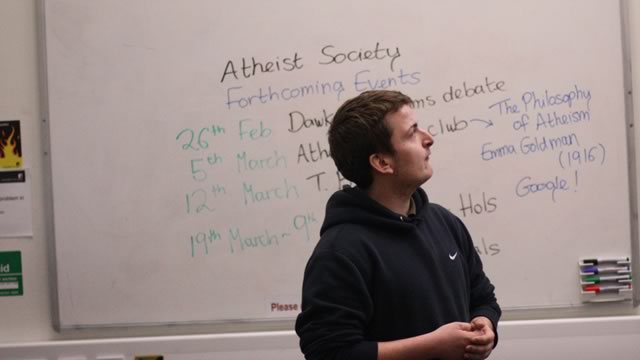
How Physics Has Shed Light on the Nature of Time
Josh Hulks presents a talk on what physics has to teach us about the nature of time.
-
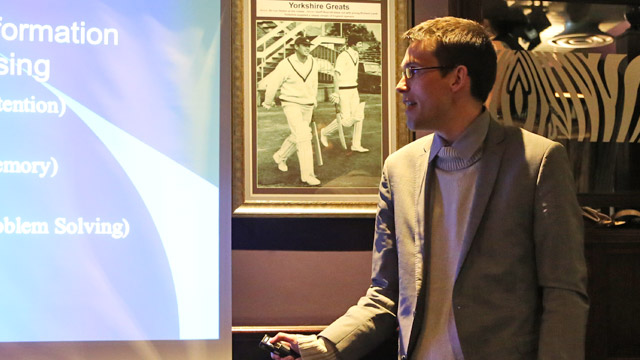
Widening the View: Looking at the limits of Human Perception
After the success of his SiTP talk, the award-winning "You know less than you think", Paul Hopwood is back for the sequel! Based around his Cognitive Psychology studies, the first talk focussed on the different stages of information processing in the human brain. By looking at research into the brain's ability to acquire, store, retrieve and use information; the talk highlighted that humans have a tendency to severely overestimate their ability to perform these tasks.
-
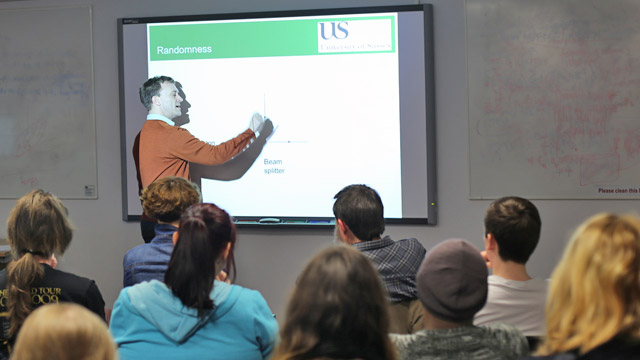
Making Use of Uncertainty: How Quantum Physics is Revolutionising Our Lives
On the microscopic scale the universe behaves in a weird and wonderful way quite contrary to our everyday experience. Objects can be in two places at the same time, cats can be both alive and dead, particles can tunnel through barriers, and randomness governs everything.
-
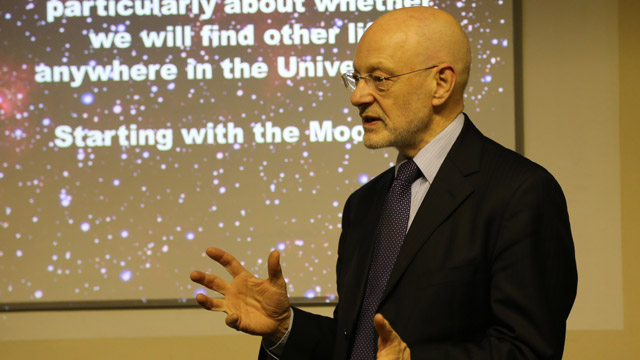
Is there life out there? (2014)
Four years ago the description of the Universe was changed from billions of stars in each of billions of galaxies to billions of planets in each of billions of galaxies. The probability of finding intelligent life out there looks like a certainty and however improbable life is, it looks as if we will find it sooner rather than later. How will it change our world?
-
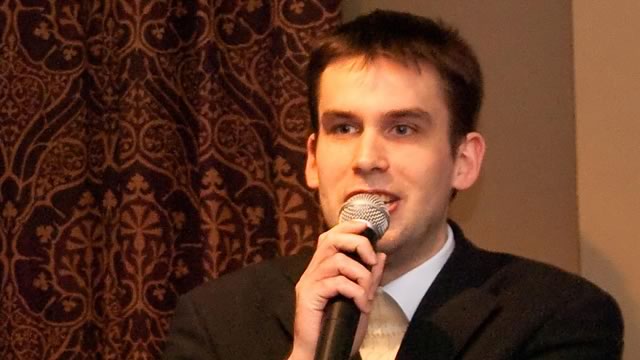
You Know Less Than You Think
Every day we all make perceptions of people and the world around us. But perception is a two-way process and most people don't stop to think about the biases inherent in their own perception. What are these cognitive biases and how much can they affect our judgement?
-
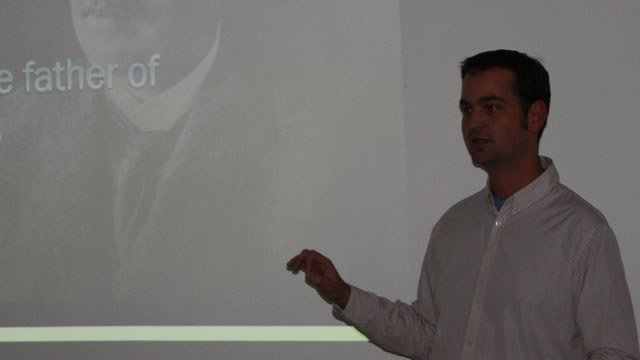
From Rutherford to the LHC
This year we celebrate the centenary of Rutherford's "discovery" of the tiny atomic nucleus at the centre of the atom. Why are scientists are still studying this topic a hundred years on? Professor David Jenkins from the University of York will explore the properties of the atomic nucleus and explain the origin of the chemical elements which make up our physical world.
-
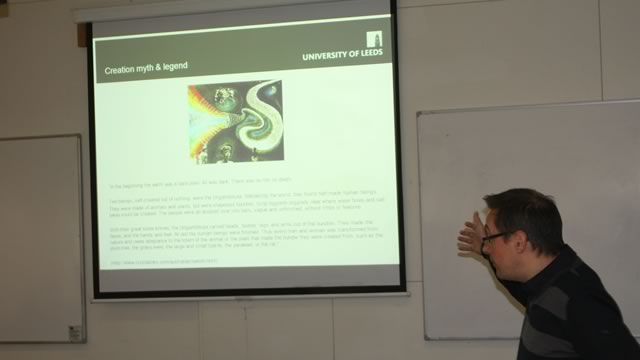
Origins of Life on Earth
Dr Terrence Kee discusses the possibility that life could have first traveled to Earth on an asteroid.
-
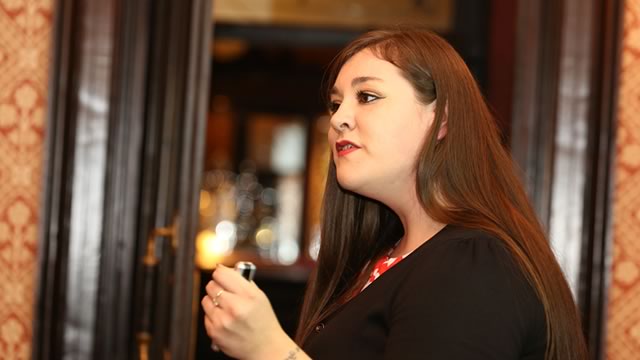
The Modern Face of Physiognomy
The notion that one can judge a person's character on the basis of their facial appearance is an idea that dates back to the ancient Greeks and for a short period, the practice of physiognomy was considered scientific. Despite the fact that this ancient practice has long been discredited, the idea that one can "read" a person's character simply by looking at their face still persists within folk psychology. In fact, this belief and our natural tendency to judge people on the basis of facial appearance has a surprisingly pervasive effect on all of our lives.
